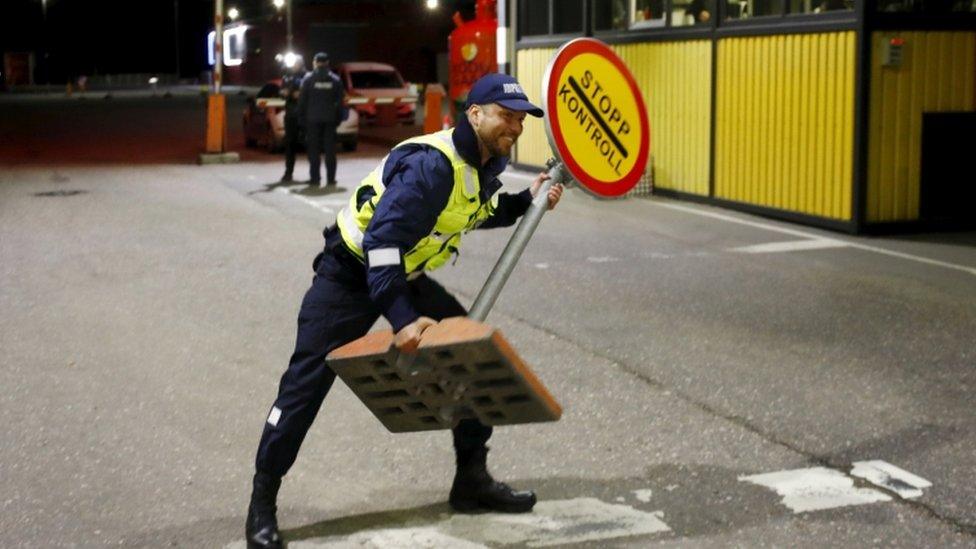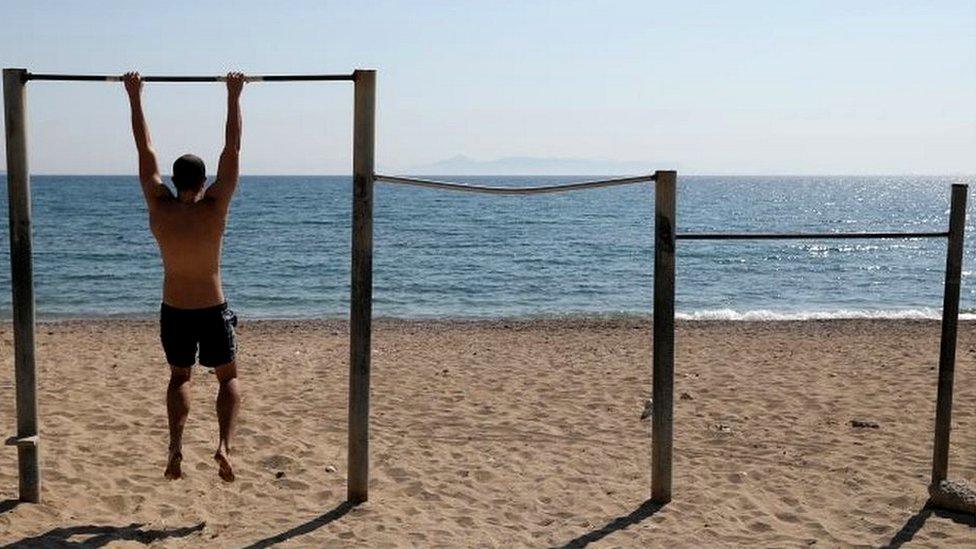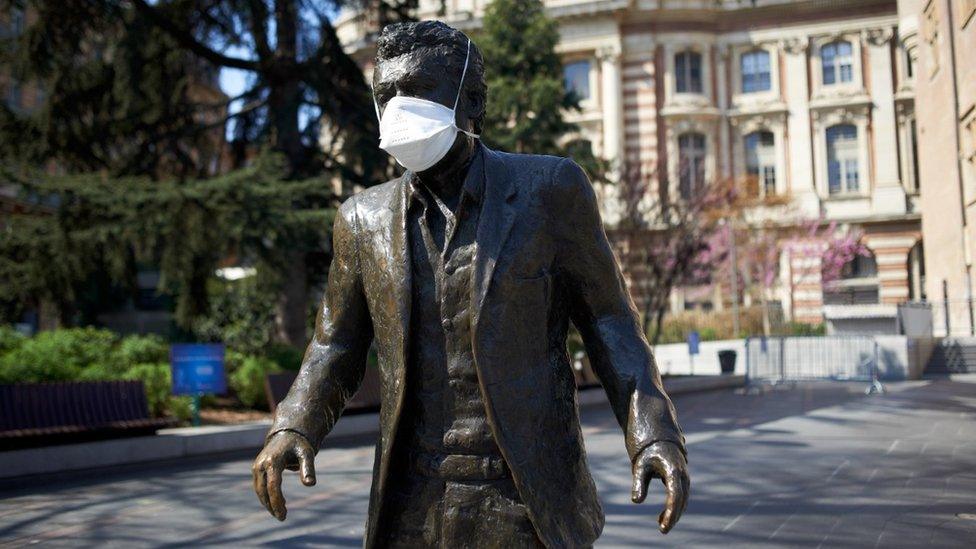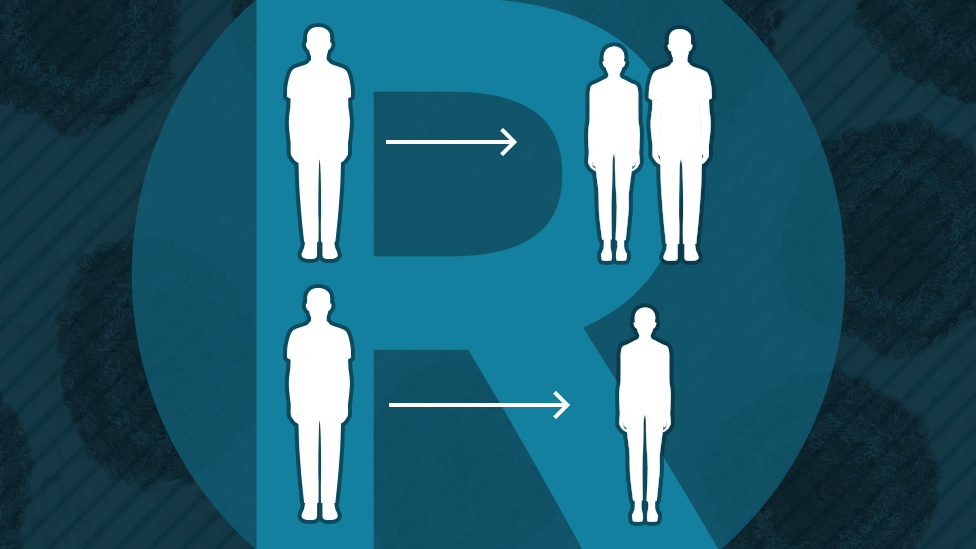Coronavirus: Baltic states open a pandemic 'travel bubble'
- Published

Border guards took down warnings signs as the Baltic states opened its "travel bubble" at midnight
The Baltic countries of Estonia, Latvia and Lithuania have opened their borders to one another, creating a coronavirus "travel bubble".
From midnight on Thursday, citizens and residents can move freely between the three EU nations.
Anybody arriving from outside the zone however must self-isolate for 14 days.
This is the first "travel bubble" in Europe since nations began shutting their borders earlier this year in response to the coronavirus outbreak.
European Union officials are now trying to encourage other countries to end restrictions on movement as concerns grow about the economic impact of the lockdown. The Baltic states expect their economies to shrink by up to 8% this year.
In a statement, Lithuania's Prime Minister Saulius Skvernelis called the move "an opportunity for businesses to reopen, and a glimmer of hope for the people that life is getting back to normal".
Allow X content?
This article contains content provided by X. We ask for your permission before anything is loaded, as they may be using cookies and other technologies. You may want to read X’s cookie policy, external and privacy policy, external before accepting. To view this content choose ‘accept and continue’.

Under the new rules, anyone who has not travelled outside the Baltic states in the past two weeks, is not infected, and has not been in contact with somebody who has tested positive may travel freely to the other nations.
The sparsely populated Baltic states have not been as badly affected by the pandemic as some of their European neighbours.
There are fewer than 150 recorded deaths between the three nations, according to data collected by Johns Hopkins University. Official national data shows very small numbers of new infections, and the three governments have already begun loosening lockdown measures brought in to contain the virus's spread.
Arnoldas Pranckevicius, the European Commission representative in Lithuania, tweeted that the commission's guidelines "encourage Member States enjoying a similar epidemiological situation to gradually open internal borders, in a coordinated and non-discriminatory way".
Both Finland and Poland have also been approached to join the Baltic travel bubble. Estonia and Finland have eased travel for business and education already, as have Poland and Lithuania.


Some other nations are beginning to lift virus related border restrictions. Germany has begun to partially reopen, and has said it plans to open all its borders on 15 June provided the new case number does not worsen.
The BBC’s Gavin Lee took a road trip in Europe's Schengen area to see how free movement has changed

THE R NUMBER: What it means and why it matters
GLOBAL SPREAD: Tracking the pandemic
VACCINE: How close are we to finding one?
HOW A VIRUS SPREADS: An explanation

- Published4 May 2020

- Published14 May 2020

- Published26 March 2021
